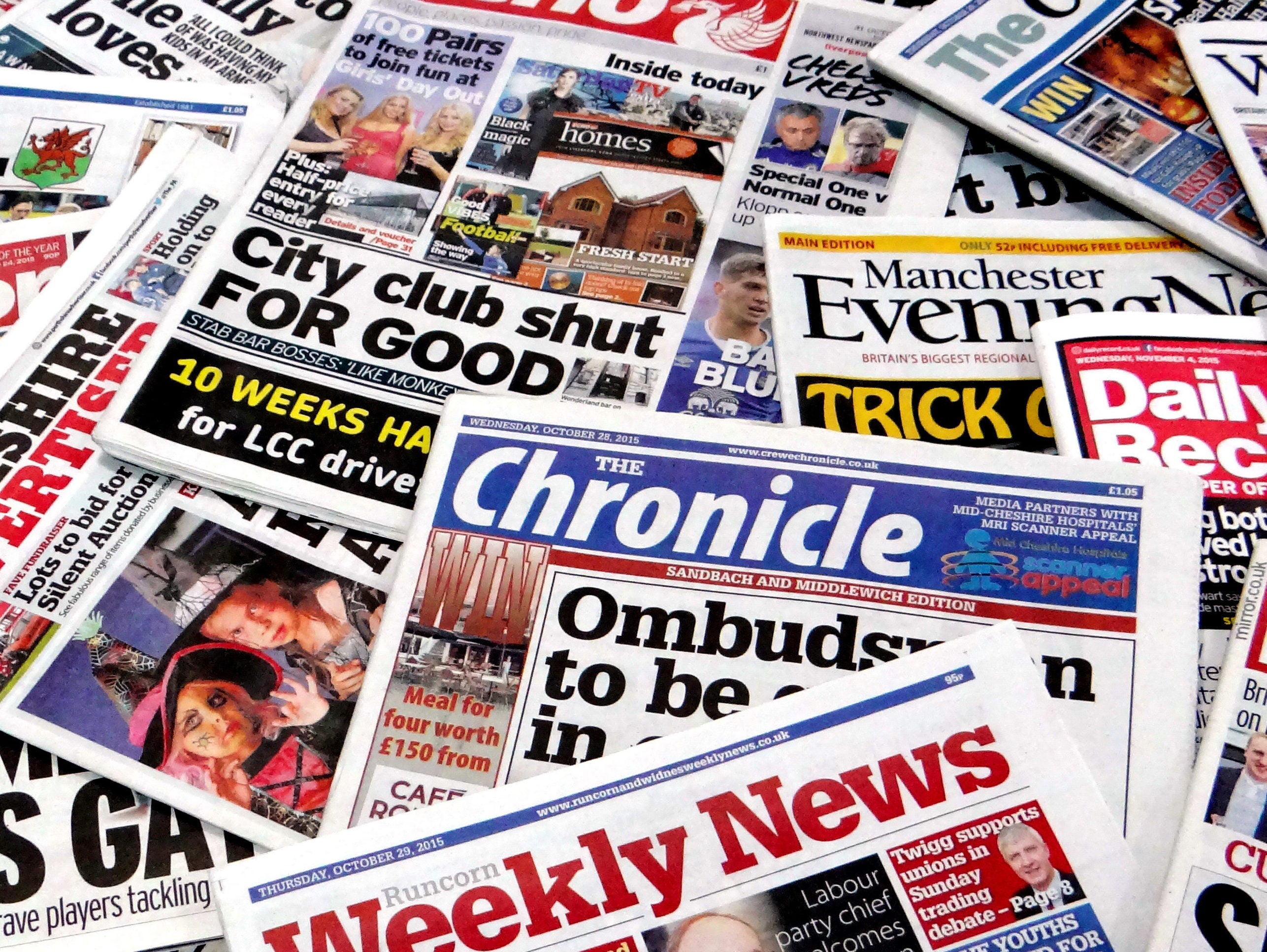
Trinity Mirror has been told it must reach out to its female staff after revealing an 18 per cent gender pay gap in its annual report today.
There was also a 3.4 per cent difference in pay bonuses in 2017 (all figures use mean average).
The figure almost exactly matches the UK average pay gap of 18.4 per cent, reported by the Office for National Statistics report in April last year.
Trinity Mirror’s wage gap was revealed as it announced it will rebrand as Reach following its buyout of Express Newspapers, which completed this month but is being looked at by the UK competition watchdog.
At Mirror Group Newspapers, which publishes the Mirror national titles including the Daily and Sunday Mirror and Sunday People, there was a pay gap of 17.8 per cent and bonus pay gap of 11.3 per cent.
The Local World part of the business, which comprises regional publications bought by Trinity Mirror in 2015, reported the lowest pay gap at 5.8 per cent, but the highest bonus pay gap at 19.8 per cent.
Media Scotland, comprising the Daily Record, Sunday Mail and numerous local titles, had the largest pay gap at 19.4 per cent and a bonus pay gap of 10.4 per cent.
A Trinity Mirror spokesperson said: “Our calculations show a gender pay gap for Trinity Mirror of 18 per cent, which is in line with the UK average.
“Whilst our position is far from unique within the media sector and FTSE companies, we are committed to addressing the issue.
“We have taken the opportunity to review our talent acquisition processes, and we have set ourselves a target of no all male shortlists for new roles going forwards.
“Furthermore, the launch of the Women Together Forum, led by Mirror Editor Alison Phillips will be exploring ways of increasing female participation in our organisation at all levels.”
The overall number of women at Trinity Mirror fell slightly in 2017, from 42 per cent to 41 per cent, and the number of women in senior managerial roles remained steady at 31 per cent.
Trinity Mirror said in the report: “In common with many companies our gender pay gap is driven by more male employees in senior roles within the business.
“We also have an impact from a traditionally higher paid print workforce which is heavily male dominated throughout all levels. Given the declining nature of this part of our business this is unlikely to change.”
A report into gender pay imbalance at the BBC, released in October 2017, revealed that women earn 9.3 per cent less than men on average but found “no systemic discrimination” against female staff.
An audit of the Press Association’s pay released last month revealed that women’s bonus pay is on average 28.5 per cent lower than men’s, although the company’s overall gender pay gap stands at 0.8 per cent.
The National Union of Journalists has called for the creation of a fully transparent pay structure at Trinity Mirror.
It referenced the company’s rebrand by suggesting union members will be happiest when they can “reach” equality with their colleagues, and that the publisher should reach out to its female employees.
Chris Morley, Trinity Mirror NUJ coordinator, said: “It is good that the company has chosen to publish its gender pay gap figures on a group-wide basis with its annual report so we can see the scale of the task needed to achieve fairness.
“An overall 18 per cent difference between the mean hourly pay of men and women is a huge gap to bridge. But bringing the issue out into the open and engaging fully with the trade unions to create fully transparent pay structures is the surest way to put it right.
“While the overall gap on average bonus payments was relatively small at 3.4 per cent, it hid significant differences within the different Trinity Mirror businesses, such as a more than an 11 per cent gap between those bonuses paid to men and their female colleagues at Mirror Group Newspapers.
“Clearly, the top paid jobs are weighted considerably towards men.
“And as for the proposed new name for the group, I think our members will be happiest when the company can ‘Reach’ equality in their ranks and women are not demeaned by lower pay rather than a cosmetic name change.”
Companies with more than 250 employees have until 4 April to publish their gender pay gap data on a government website under a new legal requirement.
Picture: Trinity Mirror
Email pged@pressgazette.co.uk to point out mistakes, provide story tips or send in a letter for publication on our "Letters Page" blog

